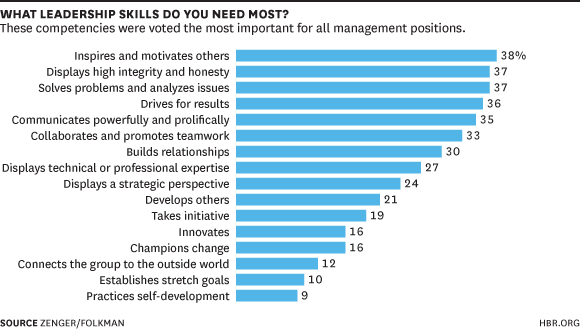
Soon after my college graduation I unexpectedly fell into a role doing marketing at a cash-rich tech startup that developed enterprise training apps. A few weeks after I started we got our first (and only) big round of funding — which meant that as a company we now had the opportunity to make some big plays.

As a young, newly-minted professional in the real world, it was a dream come true. Due to the inherent nature of a start-up and the “wearer of many hats” mentality, I was able to get my feet wet in all facets of the company. From marketing and content creation to product development and sales. And because we were a small team, I was able to take on responsibility, engage in key strategizing discussions, and take point on a variety of projects. At 22 I was a main player in a marketing team and a go-to colleague for many in the office — definitely not the storyline I had pictured myself in less than six months post college.
Unfortunately the cash-rich deposits we had all but dried up a year and a half later and I once again found myself in the job search process. Only this time, I had some experience under my belt. And as much as I valued my time with my former company, I realized quickly that for better or worse, I was spoiled beyond belief. It became very clear that the responsibility and opportunity I had experienced in that role was a result of circumstance, and certainly nothing that I had earned.
It didn’t take long for reality to kick back in as I read through job postings for roles that had similar titles to the one I had left my previous job with — ones that were chalk full of adjectives and qualifications that I simply did not yet possess. Simply put, I had been mega spoiled, and because of that I was finding it challenging to find the motivation to apply for the entry-level positions that I had so naively thought I had somehow skipped over.
The bad news, is that now I look back regretfully on that specific job search instance and shudder at the sense of entitlement I had felt. But you live and you learn, and the good news is that this story has a happy ending.
I ultimately ended up applying for an entry-level technical support position at a company I had fallen in love with long before I submitted my application. I am now almost a year into the job as a Customer Support Rep at HubSpot — and I can say with absolute confidence that my experiences in this entry-level love-it-or-leave-it role, are the experiences that are laying the foundation for success throughout my career.
Support gives employees a front-row view of the customer and the product — the two most fundamental facets of business.
Fifteen calls a day, 52 weeks a year. That’s literally thousands of conversations with customers of all backgrounds and skill capabilities that take place in every single aspect of the product imaginable.
I’ve worked with customers from all ends of the technical spectrum. From highly-technical developers where we’ve dug extensively into the back-end API sync data; to day one customers that have yet to even login to HubSpot, let alone have any idea of how to create and execute an email campaign, and with every single interaction, I’ve grown.
Working on the front lines is invaluable. No other role in the company knows the whole product better than a front-line support rep. Sure, developers and product experts have a much deeper understanding of the aspects of the tools they work to build and develop, but outside of their area of expertise they can lose touch. As a support rep, you don’t have that luxury, because you never know what that next call is going to bring. Email marketing? Design? Sales? Who knows. But it’s your job to be able to tackle and troubleshoot every part of the tool.
That technical knowledge, coupled with the customer perspective that comes from the hundreds of hours spent chatting with them, provides a massive leg-up when it comes to internal mobility — as there is arguably nothing more important to a business than the product and its customers.
The day-to-day role exposes employees to constant opportunity to build and develop cross-functional skills that are critical for future leadership and/or management roles.
A popular Harvard Business Review article highlights an expansive study that polled 332,860 bosses, peers, and subordinates on what skills have the greatest impact on a leader’s success — and somewhat surprisingly, every single one on the list is one that Support reps need to flex regularly to achieve success in the day-to-day.

Through hard-work, hustle, and determination — a successful, tenured support rep can expect to check the box on most, if not all 16 of the skills listed above. Because every day on the job exposes employees to situations in which these skills need to be flexed for survival.
Solves problems and analyzes issues. This is the job at its very core. Helping people, troubleshooting issues, diagnosing problems and figuring out next steps. Builds relationships. With customers, colleagues, managers, and mentors. Develops others. At HubSpot, you’ll frequently see the reps that consistently exceed expectations on an individual level spend big chunks of their day working to “level-up” others. A team that works consistently at an above average level is a thousand times more efficient and better off than a selection of individuals working at exceptionally high levels.
The reality is that working in technical support provides the perfect launching pad for a highly successful career; as there is no better environment to cultivate long-lasting skills that are crucial for leadership roles down the road.
Starting at the bottom of the ladder means that the only direction to move is UP.

Follow along on Instagram @maddieschiess
At the bottom, the salary is lower; the shifts tend to be longer; and the day-to-day responsibilities are generally less desirable than other roles — as would be expected. Most people hate being at the bottom of the ladder, but what they don’t realize is that being there can also be the beginning of something great.
Without stating the obvious, which is that you can quite literally only move up in your career — there are some unique competitive advantages that come with starting down there. For example, less responsibility. I know that as I continue to move up the ladder of my career, I am going to move into positions that hold more power, and with such will come more responsibility and higher stress. But starting out, the responsibilities are relatively straightforward and I’m not accountable for a team, only myself. Take time to enjoy the lack of responsibility and all of the perks that come with it. Which leads to the next advantage: more time to explore.
At the bottom, there is no better time to explore all of the available opportunities and really hone in on what it is you might want to do next through self-assessment. You can take the time to discover your strengths and your weaknesses. Take time to learn as much as possible; to try out new things and expand your knowledge of anything and everything that might be of interest to you.
I have colleagues that I could listen to on the phone all day long, as they exude a certain confidence and charm that comes as naturally to them as breathing. They might later consider a more customer-facing role as a Customer Success Manager or with People Operations. On the flip side I also have colleagues that are more reserved, but they can dig in and troubleshoot a complex case at the same level as a seasoned developer. They might later consider a role in development or product. The best part, is that these reps might not have known what their strengths and passions were, without having the freedom to learn new things and lean into what’s working that comes with starting at the bottom. Starting there will help them to plan and better align for their next career moves.
To all of the “entitled” millennials (myself included) that have taken part in, or are looking forward to starting the job search process — trust me when I say, I get it. The idea of starting in a “bottom feeder” role, just when you’ve fought so hard to scramble up the academic ladder can prove somewhat disheartening. You may have been a rock star in college or grad school, but this environment and that one are very different. The first couple of years on the job will teach you the hard lessons, and you’ll have to work hard and hustle to prove your competence.
Take it from someone who took a big ‘ole bite of humble pie — cultivating the quality of humility goes a long way with both colleagues and management. It shows that you’ve put things in perspective, knowing that you’re not entitled to anything but are worth the investment.
A fellow HubSpotter put it best, “working in technical support is not about just doing your due diligence, putting in your time at the bottom of the ladder, or getting your foot in the door. Rather, it’s about being at the epicenter of the customer experience; about having your finger on the pulse of the customer’s priorities, and in turn, on the company’s priorities. It’s about soaking up everything you can possibly learn from the thousands of conversations you have every month. And, it’s about making real human connections that can have far-reaching, if yet unknown, consequences for your career long-term."
So forget the pre-conceived notions and get on board with the reality that an entry-level role, especially one in technical support, is one of the best things you can do for yourself as it will quite literally lay the framework for future success.
Originally posted on Medium.




-2.jpg)
-25.png)




